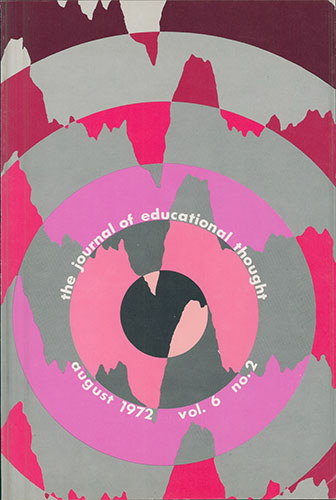The PADI: An Instrument for Measuring Philosophical Values
DOI :
https://doi.org/10.55016/ojs/jet.v6i2.43596Résumé
Individuals who occupy a position of responsibility in any formal organization are often confronted by day-to-day situations for which there are no specific institutional rules or policies defining a mandatory or most appropriate course of action to be followed in resolving issues or making decisions related to the situation.1 This seems to be especially true within the context of an educational organization, whether in the process of selecting materials and methods for teaching students or in the administrative operation of the total school system. Given such "open" situations, a question arises concerning how, in fact, an individual makes a situational decision under these nonspecified conditions. It has been suggested that by defining an individual's choice among the alternatives with which he is faced in any decision making situation, and knowing the extent to which he believes each alternative is likely to result in a particular outcome, it is thereby possible to predict what his desicion will be. Aside from the question of the feasibility and practieality of such a procedure in an educational setting, a subtle issue can be raised in trying to explain the initial rationale by which an educator might define each situational alternative and make his choice among such alternatives.
Téléchargements
Publié
Numéro
Rubrique
Licence
The Journal of Educational Thought retains first publication rights for all articles. The Journal grants reproduction rights for noncommercial educational purposes with the provision that full acknowledgement of the work’s source be noted on each copy. The Journal will redirect to the appropriate authors any inquiries for further commercial publication of individual articles. All authors wishing to publish in JET will be asked to fill in and sign a Consent to Publish and Transfer of Copyright agreement.
Authors must affirm that any submission to JET has not been and will not be published or submitted elsewhere while under considration by JET.

